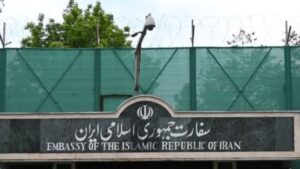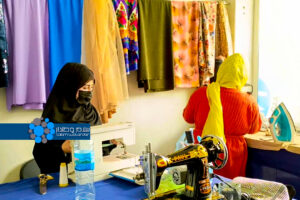MONITORING (SW) – The Human Rights Watch has stressed that Afghanistan urgently needs a functioning banking system to address the humanitarian crisis.
Since January 2022, roughly 13,000 newborns have died from malnutrition and hunger-related diseases, 95 percent of the population does not have enough to eat, and 3.5 million children need nutritional support. The United Nations has called the situation “a food insecurity and malnutrition crisis of unparalleled proportions.”
“Half of those we admit for critical care are also malnourished,” a doctor with Médecins Sans Frontières reported. Almost 800 children in one hospital in Helmand province are there because of acute malnutrition.
While many countries have pledged humanitarian aid, Afghanistan also urgently needs a functioning banking system to address the crisis. Most Afghan banks are barely operating now. In recent weeks, the United States and World Bank have unlocked billions of dollars in assistance, but restrictions on Afghanistan’s Central Bank are still making large transactions or withdrawals impossible.
Aid groups delivering humanitarian assistance say they are unable to move funds into Afghanistan because international banks remain wary of preexisting sanctions on the Taliban, and Afghan banks limit cash withdrawals due to currency shortages. Aid groups say that payments to Afghanistan are routinely blocked by banks wary of running afoul of sanctions.
Instead, most groups use the informal hawala system to transfer funds, even though the service charges can range from 4 to 8 percent in cities or as much as 13 percent in remote areas. Before the Taliban takeover in August 2021, rates were at about 2 percent.
Donors have been understandably worried that efforts to restore Afghanistan’s Central Bank would bolster the Taliban’s rule. Since taking power, Taliban authorities have arbitrarily arrested activists and journalists, executed former government officials, and engaged in widespread violations of women’s and girls’ rights.
But Afghans need all their rights protected, including the right to food. While humanitarian assistance programs can help mitigate the economic crisis, they are far from sufficient. The Taliban also need to address the crisis, including by letting women work, and donors should monitor bank transactions to ensure funds are being used for legitimate humanitarian and commercial purposes.
Without that, it will be impossible to ease the crisis and help Afghanistan’s most vulnerable children.
ENDS






